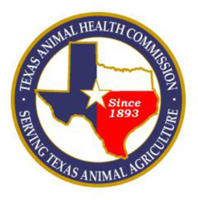|

|
 |
Texas Horse Owners Encouraged to Vaccinated Against Mosquito-Borne Illnesses
(Austin, Texas - Thursday, September 14, 2017) - The Texas Animal Health Commission (TAHC) is encouraging owners to take precautions and vaccinate their equine to protect against the West Nile Virus (WNV) and Eastern Equine Encephalitis (EEE). As of September 1, 2017 the Texas Department of State Health Services has reported five cases of WNV and one case of EEE in 2017. In addition to vaccinations, horse owners also need to reduce the mosquito populations and their possible breeding areas. Recommendations include removing stagnant water sources, keeping animals inside during the bugs' feeding times, which are typically early in the morning and evening, and using mosquito repellents. Eastern Equine Encephalomyelitis (EEE) is a mosquito-borne viral disease of all equine species. Infected horses may suddenly die or show progressive central nervous system disorders. Symptoms may include unsteadiness, erratic behavior and a marked loss of coordination. The death rate for animals infected with EEE is 75-100%. West Nile Virus is the leading cause of arbovirus encephalitis in horses and has been identified in the entire continental United States, most of Canada and Mexico. The case fatality rate for horses exhibiting clinical signs of WNV infection is approximately 33%. Data have supported that 40% of horses that survive the acute illness caused by WNV still exhibit residual effects, such as gait and behavioral abnormalities, six months post-diagnosis. Vaccines are available for neurologic diseases such as EEE and WNV. As part of routine equine health care, the TAHC strongly recommends that equine owners consult with their local veterinarians to discuss an appropriate vaccination program to protect their horses against mosquito-borne diseases. |
| Back to News |
BENEVOLENCE | BENEFITS | GROOM ELITE | PERSONNEL | LINKS | CONTACT US
